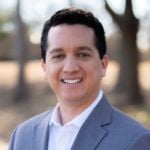
The controversy surrounding Planned Parenthood has many people discussing the issue of abortion. Please help Catholic Answers spread the Gospel of Life by sharing this video with as many people as possible.
Transcript:
The view that we can’t know when life begins is common among those who support legal abortion. And because we can’t know, they say, this means pro-lifers shouldn’t impose their “religious belief” that life begins at conception on others by outlawing abortion.
But the claim that a human being’s life begins at conception isn’t religious dogma. It’s actually a scientific fact.
We can know three things about the unborn that tell us when human life begins. We know the unborn are alive, they are human, and they are whole organisms. First, the unborn take in nutrients and grow via cellular reproduction. Second, the unborn are offspring of human parents, and have human DNA. And finally, The unborn are human organisms like you or me; whereas sperm, egg, and body cells are merely human tissue and do not have any rights.
You, me, infants, and the unborn are all human organisms. That’s because we all have an intrinsic capacity to develop as organisms, a capacity that body cells do not have. This is true even if we die before we grow up into mature members of our species. No matter how much time or nutrients you give sperm, eggs, and other body cells, they can never develop into a mature member of a species. That is because these cells are not organisms. They are instead body parts that belong to a larger human organism. And it is that organism that deserves special rights, including the right to life.
Adult, teenager, child, infant, fetus, embryo, blastocyst, zygote: these are all stages of development in the life of a human organism. Shouldn’t we treat all human organisms, or what we usually call human beings, equally regardless of what level of development they are currently at?
Finally, experts, including those who support legal abortion, agree that the life of an individual human being begins to exist at conception, or what scientists usually call fertilization. The standard medical text Human Embryology and Teratology states, “Although human life is a continuous process, fertilization is a critical landmark because, under ordinary circumstances, a new, genetically distinct human organism is thereby formed.” Keith Moore and T.V.N Persaud’s textbook The Developing Human states, “Human life begins at fertilization” Langman’s Medical Embryology also states that, “Development begins with fertilization.” Finally, the fourth chapter of Scott Gilbert’s textbook Developmental Biology is simply titled, “Fertilization: Beginning of a New Organism.”
The philosopher David Boonin writes in his book A Defense of Abortion, “[T]he most straightforward relation between you and me on the one hand and every human fetus on the other is this: All are living members of the same species, homo sapiens. A human fetus after all is simply a human being at a very early stage in his or her development.” Pro-choice philosopher Peter Singer writes in his book Practical Ethics, “there is no doubt that from the first moments of its existence an embryo conceived from human sperm and eggs is a human being.”
When does life begin? When it comes to members of the human species, or human beings, the answer is clear: life begins at fertilization, or what we often call conception. After fertilization, body parts like sperm and egg cease to be. In their place is a new, whole body, or a human organism.
Now we must ask this question: should all human organisms–regardless of how able-bodied they are, or how mentally developed they are, regardless of their age, race, sex, or any other factor–should all human organisms be treated equally and have a basic right to live? The reason abortion is wrong is because it violates the right to life of these very small human beings who are simply waiting to be born.



